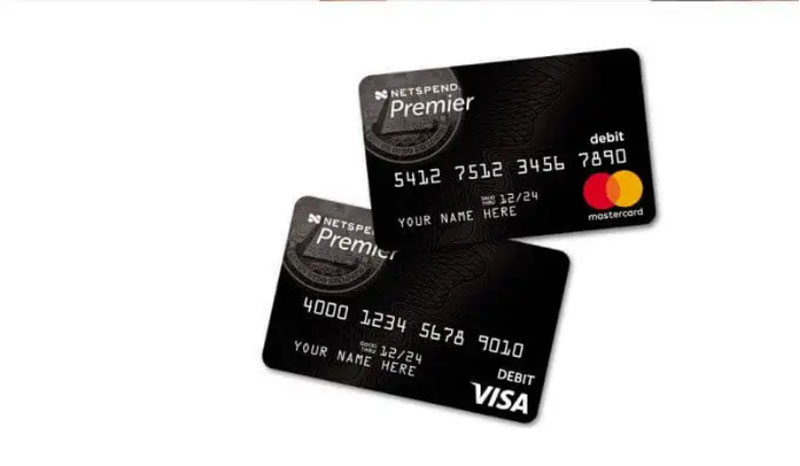Single-Use Credit Cards: A Detailed Overview
May 26, 2025 By Kelly Walker
As the world becomes increasingly digital, people rely more on online shopping. However, with this convenience comes the risk of identity theft and fraud. As a solution to this problem, one approach that has gained popularity is single-use credit cards. In this article, we'll look at single-use credit cards, how they work, and the Pros and Cons of Single-Use Credit Cards.
What Are Single-Use Credit Cards?
Single-use credit cards, also known as disposable credit cards or virtual credit cards, are credit cards that can only be used once. Financial institutions create these, and they are tied to a customer's current credit card account. Rather than using the actual credit card information, the single-use credit card produces a unique number for each transaction, adding an added degree of security to online purchases.
History of Single-Use Credit Cards

The concept of single-use credit cards has been introduced previously. The first single-use credit card was introduced in the late 1990s by Orbiscom. The company developed a technology called Controlled Payment Number (CPN), enabling customers to create a unique credit card number for each online purchase. This number would expire after the transaction was complete, making it useless for future transactions.
The concept of CPN was eventually adopted by major financial institutions, such as Citibank and Bank of America, who began offering virtual credit cards to their customers. Today, many credit card companies and banks provide some form of single-use credit card to their customers.
How Single-Use Credit Cards Work?
Single-use credit cards work by creating a unique credit card number for each transaction. Customers who want to purchase online log into their credit card accounts and generate a single-use credit card number. This number can only be used for that specific transaction and cannot be used again.
The single-use credit card number is linked to the customer's existing credit card account but does not reveal personal or financial information. This makes it much more secure than using the actual credit card number, which can be stolen or compromised.
Single-use credit cards also benefit from setting spending limits for each transaction. This can help customers stay within their budget and prevent overspending.
Using Single-Use Credit Cards
Customers must first check if their credit card provider offers this service to use a single-use credit card. If they do, customers can log into their accounts and generate a single-use credit card number for their online purchases. The number is typically valid for a short period, usually between 24 and 48 hours.
Single-use credit cards are typically used for online purchases. Still, these cards can also be used in other situations where security is a concern, such as when traveling or purchasing over the phone.
Pros and Cons of Single-Use Credit Cards

Following is a detailed discussion of the pros and cons of Single-Use Credit Cards:
Pros of Single-Use Credit Cards
Enhanced Security
Single-use credit cards provide an additional layer of security for online transactions. Each time a user generates a virtual credit card, it is linked to their existing credit card account but with a unique card number. This means that even if the virtual credit card number is stolen or compromised, the user's actual credit card information remains secure.
Reduced Risk of Fraud
Since single-use credit cards can only be used for a single transaction, there is a lower risk of fraud. If some people gains access to a virtual credit card number, they cannot use it for anything other than the specific transaction it was created for.
Easy to Use
Single-use credit cards are easy to generate and use. Many financial institutions allow users to create virtual credit cards through their online banking platforms, and the process typically takes only a few minutes.
Increased Control
Virtual credit cards allow users to set spending limits for each transaction, which can help them stay within their budget and avoid overspending. Additionally, users can generate new virtual credit cards for each transaction, which gives them greater control over their finances.
No Impact on Credit Score
Since virtual credit cards are not reported to credit bureaus, using them does not impact a user's credit score. This can be a benefit for users who are concerned about their credit scores.
Cons of Single-Use Credit Cards
Limited Use
Single-use credit cards can only be used for a single transaction, which can be inconvenient for users who make frequent online purchases. Generating a new virtual credit card for each transaction can take time and may not be less practical for users who make many purchases.
Not Universally Accepted
While many retailers accept virtual credit cards, not all do. This can limit some users' use of this type of credit card.
Extra Fees
Some financial institutions charge fees for generating virtual credit cards or using them for online transactions. Users should know these fees before using virtual credit cards to avoid unexpected charges.
Lack of Rewards
Virtual credit cards do not typically offer rewards or cash-back incentives, which can disadvantage users looking to earn rewards on their purchases.
Potential Technical Issues
Like any technology, there is always the potential for technical issues or glitches when using virtual credit cards. These issues could include delays in generating virtual credit cards or errors in processing transactions.
Conclusion
Overall, single-use credit cards can be helpful for users who want to protect their financial information while making online transactions. They provide enhanced security, reduced risk of fraud, and increased control over finances. However, they also have limitations, including limited use, potential fees, and lack of rewards. Ultimately, deciding to use a single-use credit card will depend on individual circumstances and preferences.
When considering whether to use a single-use credit card, users should weigh the pros and cons carefully. They should also research the policies and fees of their financial institution to ensure they understand the total costs and benefits of using virtual credit cards. With the correct information and careful consideration, users can determine whether a single-use credit card is the right financial tool for them.

Want to reduce your homeowner's insurance costs? Here are home improvement ideas that can save money and give you peace of mind.
home improvement ideas that lower your homeowner’s insurance costs
May 26, 2025 John Davis

Corporate Tax Rates Around the World: From the Highest to the Lowest
Here are the nations that have the most favorable business tax environments and which impose the highest tax burdens on corporations. Whether you're an entrepreneur looking to minimize your tax liabilities or simply curious about global tax policies, this article provides valuable insights into the world of corporate taxation.
May 26, 2025 Kelly Walker

4 Amazing Short–Term Health Insurance Providers For You
A short introduction of health insurance providers with their pros and cons
May 26, 2025 Kelly Walker

Multiple Linear Regression (MLR) - An Introduction to the Formula and Its Application
Learn what Multiple Linear Regression (MLR) is and how it can be used to analyze relationships between multiple independent variables and a dependent variable. Also, learn the practical applications of MLR, particularly in finance.
May 26, 2025 Kelly Walker

The Four Most Important Dividend Stock Ratios
The dividend stock ratio is a measure of a company's potential to continue dispersing dividends to its investors. The dividend coverage ratio, dividend payout ratio, Net Debt to EBITDA, and free cash flow to equity are the four most common ratios.
May 26, 2025 Rick Novak

Top-Performing Smart Beta Funds
Five years ago, Smart Beta funds were introduced to the Indian financial sector. Investors have been discussing these ETFs ever since. There are now 35 smart beta funds available to investors.
May 26, 2025 Rick Novak